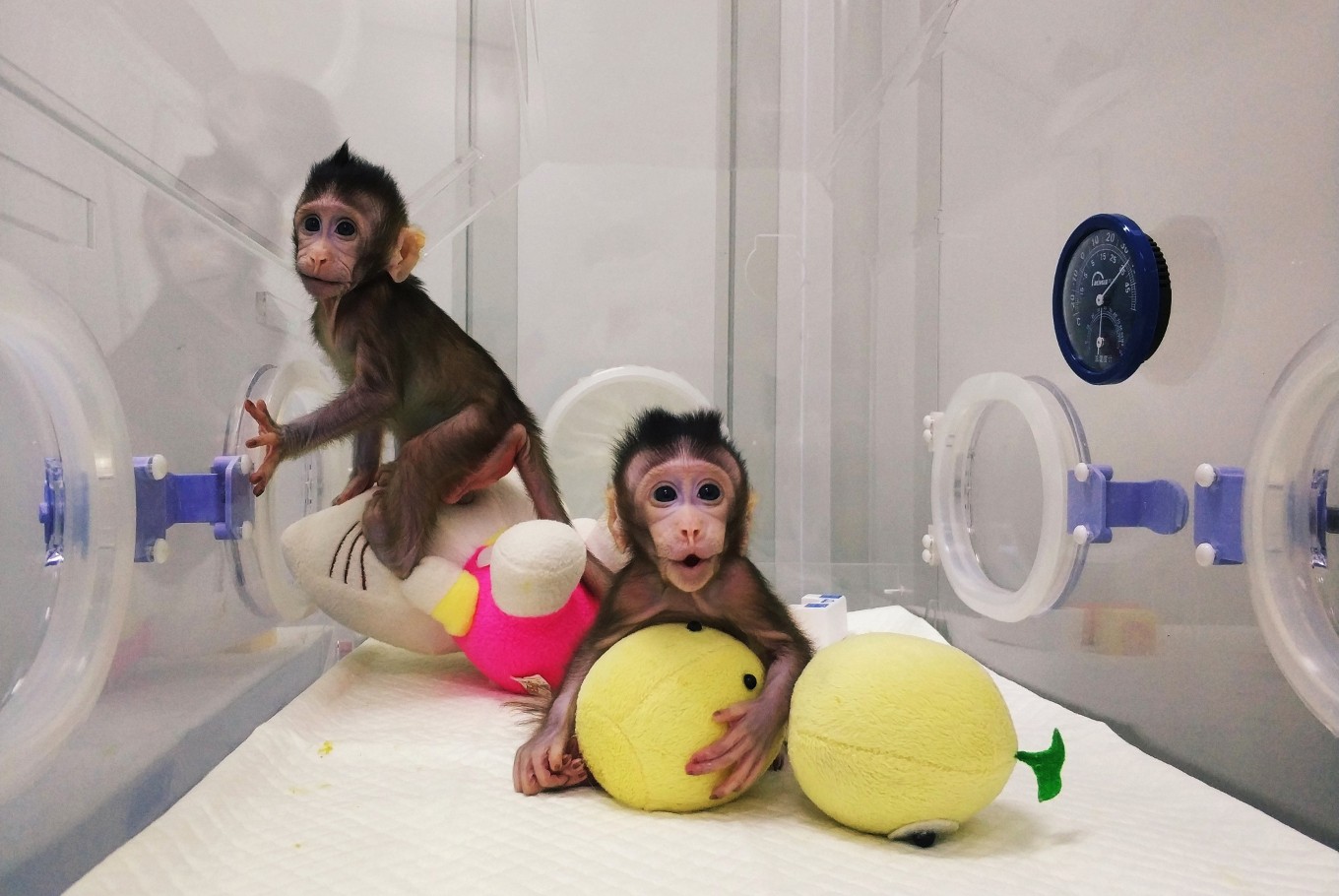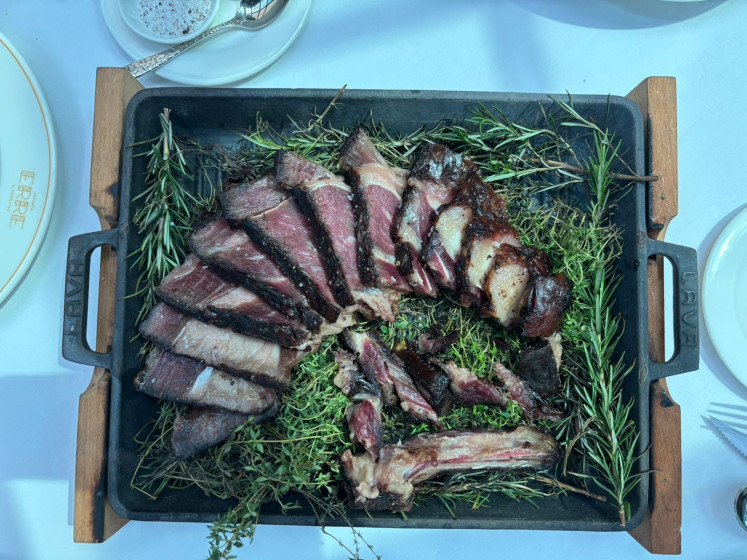Popular Reads
Top Results
Can't find what you're looking for?
View all search resultsPopular Reads
Top Results
Can't find what you're looking for?
View all search resultsWorld hails monkey cloning
Change text size
Gift Premium Articles
to Anyone
N
ews of the successful cloning of two monkeys by Chinese scientists has attracted attentions around the world and triggered debate about moral and ethical standards, including in the United States.
Insoo Hyun of Case Western Reserves' School of Medicine said the cloning is a remarkable breakthrough.
"People have been trying for the past 20-plus years to do this since the birth of Dolly sheep. But nobody has ever been able to produce live baby monkeys from this, so it's quite startling," the bioethicist told Canada's CTV News.
Darren Griffin, a professor of genetics at the University of Kent, called the research "very impressive" from a technical standpoint.
Despite a series of ethical concerns, Griffin said the benefits of this approach are clear.
"A primate model that can be generated with a known and uniform genetic background would undoubtedly be very useful in the study, understanding and ultimately treatment, of human diseases, especially those with a genetic element," he told Agence France-Presse.
Read also: First monkeys cloned by process that made Dolly the sheep
Meanwhile, a Gallup poll on Thursday showed that about a third of US residents (32 percent) say they found cloning animals morally acceptable. The figure was based on the Values and Beliefs survey conducted by Gallup in May.
When the same question was posed in early 2001, about 31 percent of respondents said cloning animals was morally acceptable.
About 14 percent of US citizens say they found human cloning morally acceptable in May's survey. It has doubled since the question was first asked in 2001, Gallup said.
"Americans have been growing more liberal in their attitude on many moral issues over time, but views on the moral acceptability of cloning animals have been steady across Gallup's 17-year trend," the report said.
The cloning of the two monkeys, announced on Thursday, has used the same method that created Dolly the sheep in Scotland in 1996.
Zhong Zhong and Hua Hua, the primates, were created at the Chinese Academy of Sciences' Institute of Neuroscience based in Shanghai.
Pu Muming, director of the neuroscience institute, said the reason to break this technical barrier is to produce animal models that are helpful for medical research and human health.
This article appeared on the China Daily newspaper website, which is a member of Asia News Network and a media partner of The Jakarta Post











